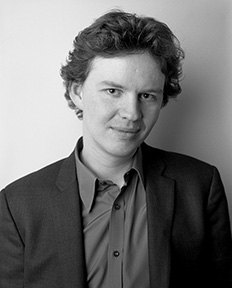
profiles |
Matthew Prince ’96
by Emily Groff
 When
a Renaissance man meets the Internet
When
a Renaissance man meets the Internet
Matthew Prince, Class of 1996, is a man of diverse interests. At Trinity, he studied English and computer science, and since his graduation, he has earned a both a law and a business degree. He manages to combine all his interests by developing Web companies that offer solutions to unsolved technology problems.
Prince attended law school at the University of Chicago in the late 1990s, the height of the dot com boom, but when he graduated, the bubble had burst. Fortunately, the brother of one of his law professors was starting a Web company and offered him the opportunity to stay in Chicago and help build it. Prince jumped at the chance, beginning what would become a successful career in Web-site development.
In 2003, Prince began teaching courses at John Marshall Law School on issues of technology and the law. Around the same time, the Federal Trade Commission introduced the National Do Not Call Registry, allowing consumers to stop unwanted telemarketing calls. Prince thought people should also be able to stop receiving spam e-mails and other unwanted electronic solicitations, and he began developing an idea that became Unspam Technologies. Unspam works with governments to create do-not-contact registries for e-mail addresses, fax and mobile phone numbers, and instant messenger usernames.
Today, Unspam helps administer laws limiting electronic solicitations in Michigan and Utah. According to Prince, the company and its clients are especially interested in regulating unsolicited e-mail from “adult companies,” those that deal with alcohol, pornography, or gambling, and allowing such companies to scrub their lists. Unspam also developed Project Honey Pot, which allows companies to track spammers, phishers, and other e-criminals that might steal information from their Web sites. Project Honey Pot currently has 60,000 subscribers and tracking software in 150 countries, and it shares data with law enforcement agencies to help them understand online threats.
Prince used the tracking data from Project Honey Pot for his latest venture, CloudFlare, which he developed while pursuing his M.B.A. at Harvard Business School. He says, “CloudFlare is a service that allows companies to understand who is visiting their site, and help them manage access.” On a whim, Prince and his business partner and classmate, Michelle Zatlyn, entered CloudFlare in the business school’s Business Plan Contest. They beat 93 other teams for top honors, and received $25,000 in cash and $25,000 of in-kind accounting and legal services. Because of the competition, CloudFlare has a lot of interested suitors and Prince is actively talking with venture capital firms while ramping up a team and quietly launching the service.
On creating Web business, Prince says, “I love starting these businesses—building teams, gathering resources, and coming up with solutions to unmet needs. It’s been great working with all the talented people I’ve been fortunate to have crossed paths with over the years.” As for the future, he has “no earthly idea” where he’ll end up, but adds, “It’s been a fun journey so far. If the next 10 years could be like the last 10 years,that would be great.”
